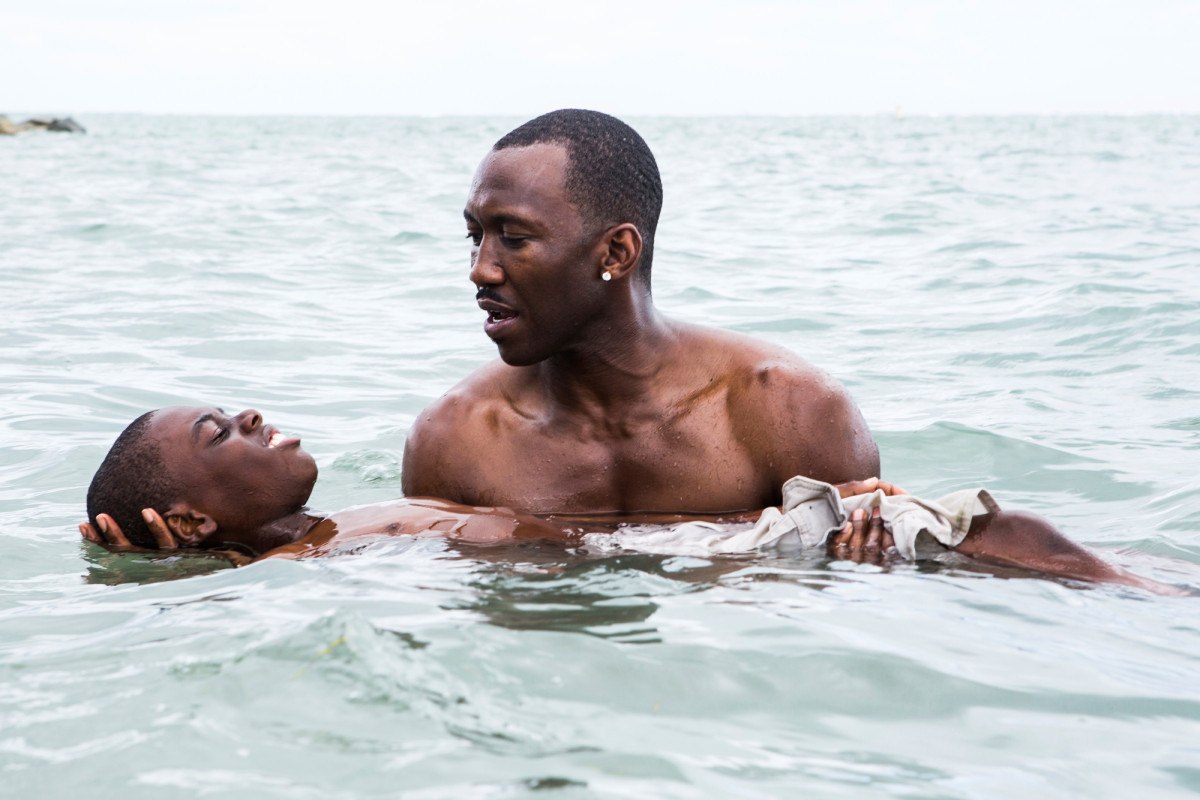There are strong, original things in Barry Jenkins’ Moonlight, and there are things that would fit in a cautionary ABC Afterschool Special. Sometimes the film’s style is muscular and striking, and sometimes it’s flat. But Jenkins got one thing right: He really knows how to build. By the time Moonlight reaches its third and final act (it’s explicitly divided into chapters), the film has gained power and a slow, steady momentum. The last few scenes consist of two people sorting out longstanding issues between them—and barely managing to do that—but the suspense is formidable.
We follow one troubled character from childhood to adulthood, so it’s one of those movies with three different actors—all haunting—playing the same role. When we first meet Chiron (Alex R. Hibbert), he’s dismissively called “Little” by the bullies at his Miami grade school. A drug dealer named Juan (the sensational Mahershala Ali, from House of Cards and Luke Cage) and his girlfriend Teresa (singer Janelle Monáe, very engaging) give Little occasional shelter, as the quiet kid steers clear of his addiction-riddled mother (Naomie Harris). The film never answers the riddle of why Juan develops paternal feelings for the boy, but it doesn’t need to; this dangerous man has instincts that are apparently untapped but strong. Juan needs something as much as Little does. Father knows best, even in these challenging circumstances.
A few years later, Chiron (Ashton Sanders) is still getting pushed around, although his friend Kevin (Jharrel Jerome) provides teasing, if somewhat enigmatic, support. The film’s final section finds these two characters as adults, when Chiron—now brawny and steeled against the world, and known as Black (Trevante Rhodes)—is surprised by a phone call from Kevin (Andre Holland, from The Knick), and the two men have an opportunity to settle some issues from the past. But will they? This question has a lot riding on it, including whether Little/Chiron/Black will ever come into full possession of his elusive, silted-over self. There are no particular twists in Moonlight, but I’m trying not to give too much away, because seeing this film without knowing anything about it, as I did, adds to its strength.
The film is adapted from a stage work by Tarell McCraney, and the only section that really feels as though it might have come from a play is this last part. But that’s a good thing: The dialogue circles and paces and slowly explores whether these two characters will get around to saying long-unsaid things. At this point, Chiron and Kevin are two specific characters, very different from each other; maybe they don’t have much in common now, if they ever did. But they still need to deal. The setting—a humble diner—also adds just the right degree of didn’t-see-that-coming.
Up to that point, director/adaptor Barry Jenkins is hit-and-miss. He tends to try on different modes, as though looking for ways to drape style around the story’s bones. He’s certainly come a long way since his previous feature, Medicine for Melancholy (2008), a self-righteous talkfest with a shortage of charm. Here, the schoolhouse scenes can be generic (the bullying scenes are mostly standard-issue TV-episode material), and he struggles to get female characters involved in this story; especially unfortunate is Chiron’s mother, given a by-the-book treatment despite the efforts of the talented Harris. But stray, sad details begin to add up, hinting that life might come down to a collection of crucial moments—a boy touching another boy’s wounded face, or a hand dragged along the sand—and that the years that intervene are mostly waiting to figure out what those moments meant. That’s an evocative theme, and in the end Moonlight brings it to a moving close. It also makes you wonder what happens next, as inspired endings do. Moonlight. Rated R. Opens Fri., Nov. 4 at the Egyptian, Sundance Cinemas, Lincoln Square.
film@seattleweekly.com






